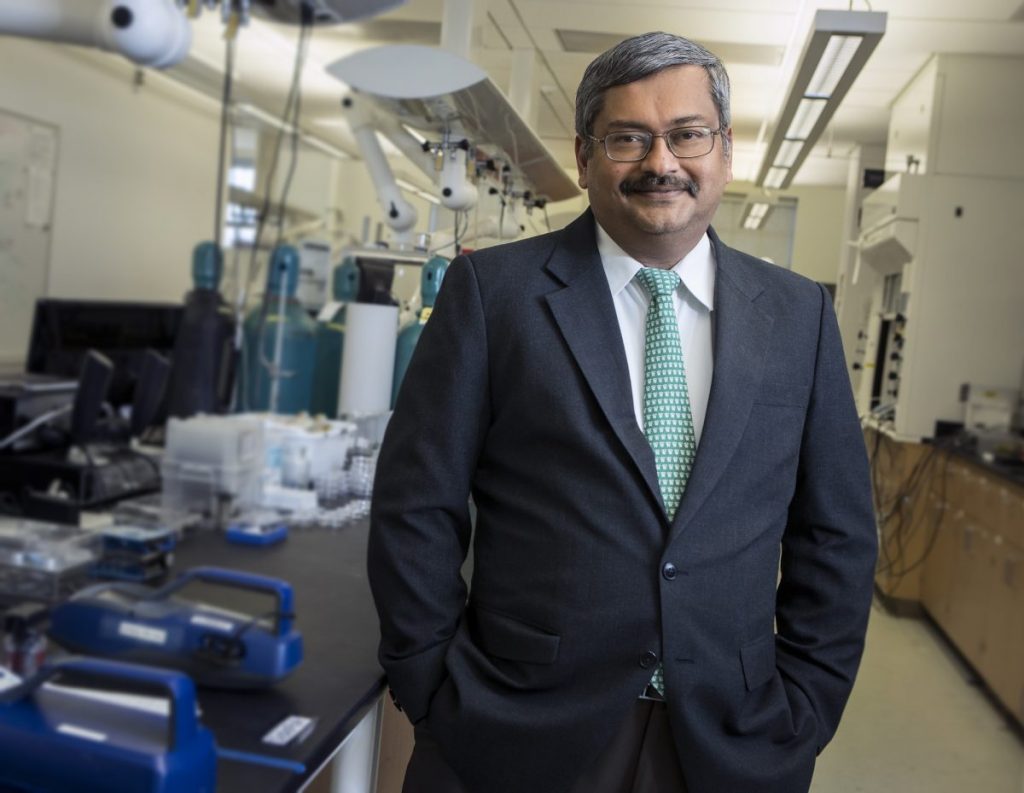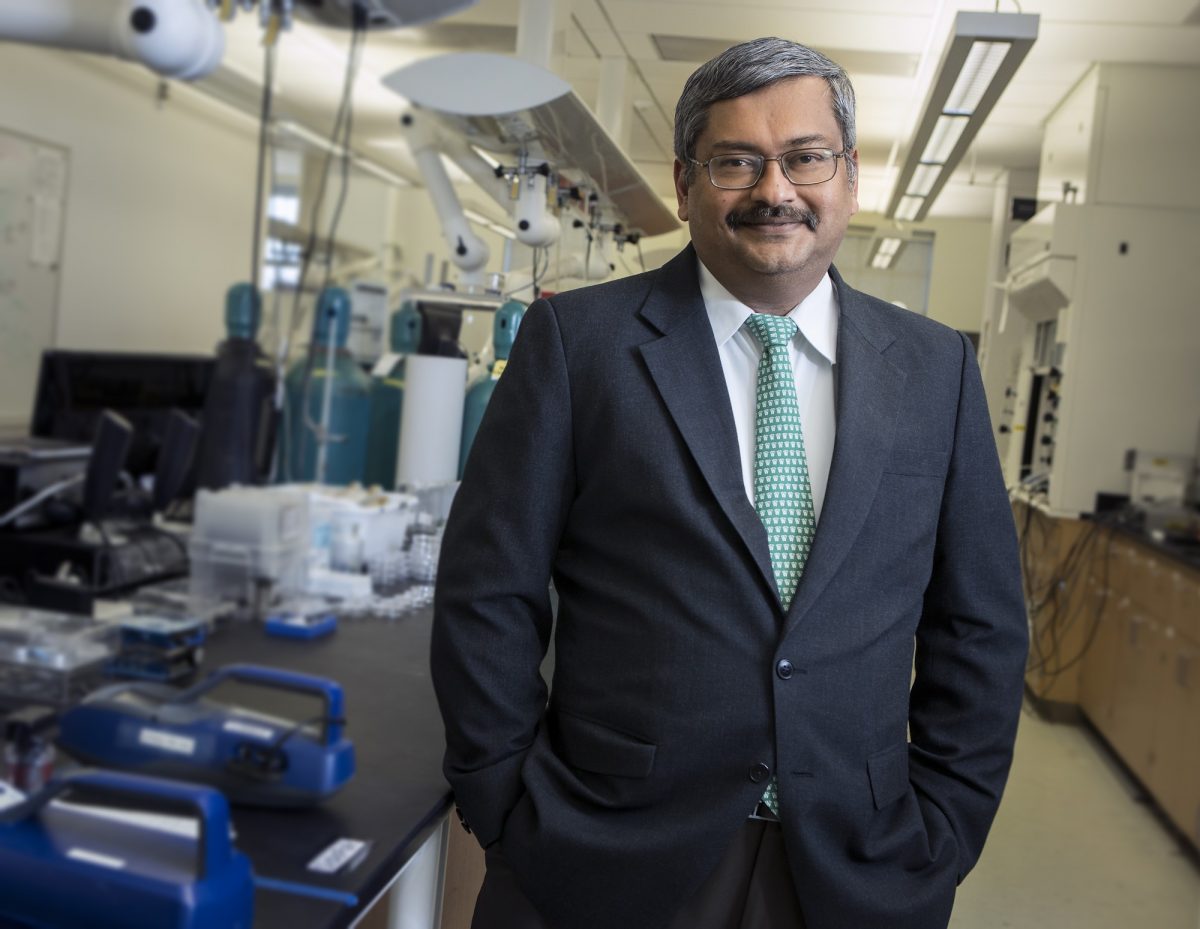
In January 2021, the University of Miami will introduce Pratim Biswas—a world-renowned engineer and aerosol scientist—to the university faculty and campus community as the new dean of UM’s College of Engineering. Currently employed at Washington University in St. Louis, Biswas will begin making his transition to South Florida later in the fall, bringing his expertise and visions for the future alongside him.
“The College of Engineering is really young, founded in 1947. I am really looking forward to its 75th anniversary in 2022 so that we can have a big celebration with our alumni,” Biswas said. “The alumni at the university are very loyal, and that is a great thing. They had a great time at the university, and they remember that as they march through their careers.”
Upon his arrival, Biswas will bring decades of academic experience to UM, but his experiences in the world of academia were rooted before his career. Biswas spent much of his early life being raised at the Indian Institute of Technology in Bombay, India, where his father was a chemistry professor and his mother was a mathematician.
“IIT is a residential university, meaning everyone lives on a campus including students, faculty and staff. It’s a nice sort of island and gated area. Growing up on that campus as a child, you are automatically interacting with a lot of academics, and that sort of rubs in. That was a clear influence for me,” Biswas said.
With a deeply educated background, proficiency in academics became second nature for Biswas and he developed a fascination with engineering at a young age. Throughout his years in higher education, he earned a Ph.D in Aerosol Science and Technology from the California Institute of Technology, a master of science from the University of California – Los Angeles and a bachelor’s degree from the Indian Institute of Technology.
“Pratim Biswas is a leader in his field, a skilled academician, scholar and researcher who is deeply dedicated to helping both students and faculty members to excel. His knowledge of all facets of engineering and his ideas on bolstering interdisciplinary initiatives at the university promise to elevate the College of Engineering to new heights,” UM President Julio Frenk said in an interview with News@TheU.
Over the last 20 years of his career, he has worked a variety of roles at Washington University. He made an impact on its campus with the revival of an environmental engineering science program that had dissolved 30 years earlier. More recently, he has been the chair of the Department of Energy, Environmental and Chemical Engineering— a program he created that currently has $8 million devoted to research projects— and the assistant vice chancellor of the university’s international programs.
At Washington University, Biswas was the university’s only representative in the National Academy of Engineering— a private, nonprofit institution that provides engineering leadership and service to the United States through its body of elected representatives. At UM, he will join three others: Daniel Berg, Leonard Pinchuk and James M. Tien.
“As a member of the academy, Dr. Biswas brings a wealth of knowledge, experience, and expertise to the University of Miami, along with a passion that will benefit everyone at the college and throughout the university,” UM Provost Jeffrey Duerk said in an interview with News@TheU.
As dean, Biswas will commence work on various initiatives he has already begun to outline and structure ahead of his arrival. For the foreseeable future, he plans to develop and advance six “trust areas,” titled Healthcare Engineering, Advanced Materials, Sustainability and Resilience, Energy and Environment, Data Sciences and Space Engineering. He also intends to further his endeavors abroad with the creation of an international academy within the campus community.
“With an international academy, we can connect not only with hemispheric regions, but with top engineering schools in Asia and Europe. We are also going to make an effort in innovation and entrepreneurship and take existing programs, consolidate them, and take them to the next level,” Biswas said.
While he currently remains in St. Louis, Biswas continues to work tackling issues in the field of aerosol science. One of today’s most critical concerns, climate change has been the subject of much of Biswas’s research.
“There is an uncertainty associated with climate change, and that comes from small particles and aerosols in the atmosphere. Aerosols can cause global warming, but they can also cause global cooling. The uncertainty in the climate change equations come from fine particles, and that’s why aerosol science is such a fascinating field,” Biswas said.
Biswas has also been leading the development of sensors capable of detecting Covid-19 aerosols within a person’s vicinity. The sensors are small enough to clip on to a shirt and will widely be used in hospitals, but when mass produced, they can also be utilized in classrooms. Referring to these sensors as a “revolution in the field of aerosol technology,” Biswas has stated that they can also be reconfigured to detect flu aerosols and lunar dust, which can be harmful to astronauts’ health in space expeditions.
“You want to be sure that you are safe sitting in a classroom by being distanced and wearing a mask. But now, in addition, you can clip a low-cost sensor to your shirt that can detect your exposure to Covid-19 aerosols and particles,” Biswas said. “This technology is being applied as I speak in Washington University.”
While time remains before his visions will materialize at UM, Biswas credits the university for being committed to advancing the field of engineering.
“The College of Engineering’s collaborations with the other schools in the university are already in place, so we can further build. It’s very attractive being small. We can interact with each other. I really look forward to work here with this faculty and elevate the college,” Biswas said.







